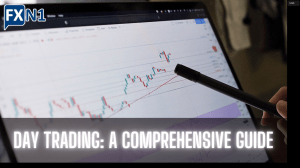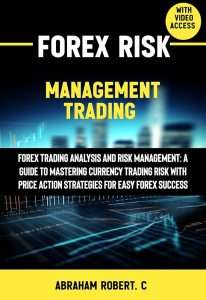A Beginner’s Guide to Forex Trading
Unlock the secrets of forex trading! Learn the basics, understand market dynamics, and start your journey to confident currency trading today. Master forex now!
Forex trading, or foreign exchange trading, can seem daunting at first․ It involves the buying and selling of currencies on a global market․ However, with the right knowledge and approach, it can be a rewarding and accessible investment opportunity․ This guide will equip you with the foundational understanding needed to navigate the complexities of the forex market, setting you on the path to confident and informed trading․
Understanding the Forex Market
The forex market is the largest and most liquid financial market globally․ Unlike stock markets with centralized exchanges, forex trading occurs over-the-counter (OTC), meaning transactions take place directly between two parties, often through brokers․ This decentralized nature contributes to its high liquidity and 24-hour trading availability, spanning across various global time zones․ The market’s sheer size ensures that even significant trades have minimal impact on prices, making it relatively stable compared to some other markets․
Major Currency Pairs and Terminology
Familiarizing yourself with common currency pairs is crucial․ Major pairs, like EUR/USD (Euro/US Dollar) and USD/JPY (US Dollar/Japanese Yen), are highly liquid and volatile․ Minor pairs involve one major currency and one less traded currency․ Exotic pairs combine a major currency with an emerging market currency․ Understanding the concept of pips (points in price) and lots (the unit of trading) is fundamental for calculating profits and losses; Further, grasping concepts like bid and ask prices is essential for executing trades effectively․
Getting Started with Forex Trading
Before diving into actual trading, meticulous planning and preparation are crucial․ This includes understanding the inherent risks involved and developing a robust trading strategy․ A well-defined plan will guide your decisions, minimizing emotional reactions that often lead to poor choices․ Thorough research and understanding of market trends are essential for success․
Choosing a Forex Broker
Selecting a reputable and regulated forex broker is paramount․ A trustworthy broker offers competitive spreads (the difference between the bid and ask price), reliable execution, and robust customer support․ Research different brokers, compare their offerings, and read reviews before making a decision․ Ensure the broker is regulated by a recognized financial authority to protect your funds and ensure fair trading practices․ Consider factors such as trading platform features, educational resources, and account types offered when making your choice․
Opening a Demo Account
A demo account is an invaluable tool for beginners․ It allows you to practice trading with virtual money in a risk-free environment, replicating real market conditions․ This hands-on experience helps you refine your strategies, test different approaches, and gain confidence before investing real capital․ Use the demo account to familiarize yourself with the trading platform, understand order types, and develop your trading plan without the pressure of financial loss․ Practice consistently to build proficiency and confidence․
Developing Your Trading Strategy
A successful trading strategy is the cornerstone of consistent profitability․ This involves defining your risk tolerance, establishing clear entry and exit points, and managing your trades effectively․ A well-defined strategy minimizes impulsive decisions and provides a structured approach to trading․ Consistent monitoring and adaptation are crucial, as market conditions are constantly evolving․
Fundamental vs․ Technical Analysis
Two primary approaches guide forex trading strategies: fundamental and technical analysis․ Fundamental analysis involves examining economic indicators, political events, and other macroeconomic factors that influence currency values․ Technical analysis focuses on chart patterns, price movements, and indicators to predict future price trends․ Many successful traders incorporate elements of both approaches for a holistic perspective․
Risk Management: A Crucial Aspect
Risk management is not just about limiting losses; it is about preserving capital and ensuring long-term success․ Never risk more than you can afford to lose․ Employ strategies like stop-loss orders to automatically exit a trade when it reaches a predetermined loss level․ Proper position sizing – determining how much to invest in each trade – is crucial for managing risk effectively․ Diversification, spreading your investments across different currency pairs, also reduces overall portfolio risk․
Essential Tools and Resources
Many resources are available to enhance your forex trading journey․ These resources provide valuable insights, data, and tools to improve your trading decisions and enhance your overall understanding of the market․ Consistent learning and adaptation are key to long-term success in this dynamic environment․
Economic Calendars and News Sources
Staying informed about economic events and news is crucial․ Economic calendars provide schedules of upcoming economic data releases, allowing you to anticipate potential market movements․ Reputable financial news sources offer real-time updates and analyses, providing valuable context for your trading decisions․ Understanding how economic announcements can influence currency values is a crucial skill for successful trading․
Charting Software and Technical Indicators
Charting software provides visual representations of price movements, allowing you to identify trends and patterns․ Many technical indicators, such as moving averages and relative strength index (RSI), help analyze price trends and predict potential market reversals․ Mastering the use of these tools enhances your ability to identify profitable trading opportunities․
Common Mistakes to Avoid
- Overtrading: Placing too many trades without proper analysis can lead to significant losses․
- Ignoring Risk Management: Failing to set stop-loss orders or manage position size properly can result in substantial losses․
- Emotional Trading: Letting emotions like fear and greed dictate trading decisions can lead to poor choices․
- Lack of a Trading Plan: Trading without a well-defined strategy increases the likelihood of inconsistent results․
- Chasing Losses: Attempting to recoup losses by increasing trade size is a common mistake that often exacerbates losses․
Continuous Learning and Adaptation
The forex market is constantly evolving, requiring continuous learning and adaptation․ Stay updated on market trends, economic developments, and new trading strategies․ Regularly review your trading performance, identify areas for improvement, and refine your approach accordingly․ Consider seeking mentorship or joining a forex trading community to learn from experienced traders and share insights․
Staying Disciplined and Patient
Success in forex trading requires discipline and patience․ Stick to your trading plan, manage your emotions effectively, and avoid impulsive decisions․ Consistent effort and a long-term perspective are crucial for achieving sustainable profitability․ Remember that success takes time and consistent effort․
Forex trading offers a unique opportunity to participate in a dynamic global market․ It requires dedication, discipline, and continuous learning․ However, with the right preparation, strategy, and risk management, forex trading can be a rewarding and potentially profitable endeavor․ Remember to always prioritize risk management and only invest what you can afford to lose․ This comprehensive guide provides a strong foundation, but continued learning and practical experience are essential for long-term success in the Forex markets․ Beginners should approach the market with caution, utilizing demo accounts extensively and focusing on developing a solid understanding before venturing into live trading with real capital․ Consistent practice and a commitment to continuous improvement are key to navigating the complexities and realizing the potential rewards of Forex trading․
Remember to always conduct thorough research and seek professional financial advice before making any investment decisions․ The information provided here is for educational purposes only and does not constitute financial advice․ Forex trading involves significant risk and may not be suitable for all investors․ Always trade responsibly and within your means․ The journey to mastering Forex trading is an ongoing process of learning and adaptation, requiring dedication and a willingness to embrace challenges and celebrate successes․







